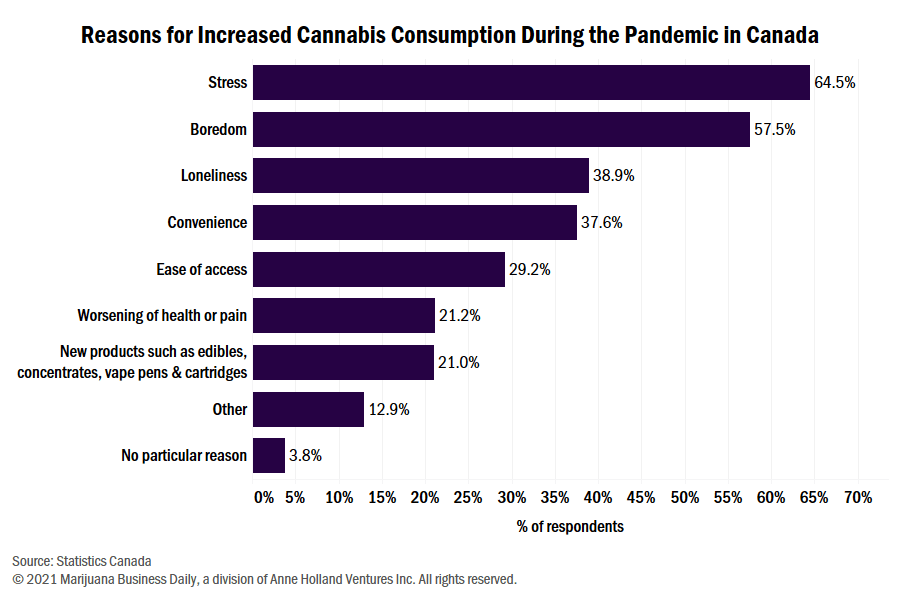
Slightly more than one-third of Canadians who use cannabis increased their consumption during the COVID-19 crisis, according to a new Statistics Canada report on pandemic-era alcohol and marijuana use.
The report offers new insights into why Canadian cannabis users might have increased their marijuana use during the public-health crisis.
Sixteen percent of Canadians reported using cannabis at least once in the previous month, according to the study, which was based on a January 2021 web panel said to be statistically representative of the Canadian population.
Thirty-four percent of those who had previously used cannabis said they increased their consumption during the pandemic, compared with 12% who reported using less cannabis.
More than half of cannabis users (54%) said they had not increased their consumption during the pandemic.
Stress, boredom and loneliness were the top three reasons given for increased cannabis consumption, followed by “convenience such as due to lack of regular schedule, at home more often,” ease of access to cannabis, worsening health or pain and new products such as edibles, concentrates and vapes.
“Increased social acceptance of cannabis, and the increased number of outlets and range of products available were among factors thought to have led to increased consumption over the past year,” according to Statistics Canada.
Canadian sales of regulated cannabis increased by 120% in 2020 over 2019, as more licensed marijuana stores opened in most provinces.
Statistics Canada previously estimated that sales of regulated adult-use cannabis surpassed sales of illicit recreational marijuana for the first time in the third quarter of 2020.
A previous Statistics Canada report, released in February 2020, found an increase in overall cannabis consumption between 2018 and 2019, particularly among people 25 and older and among males.
Canada legalized recreational marijuana on Oct. 17, 2018.
Medical Disclaimer:
The information provided in these blog posts is intended for general informational and educational purposes only. It is not a substitute for professional medical advice, diagnosis, or treatment. Always seek the advice of your physician or other qualified healthcare provider with any questions you may have regarding a medical condition. The use of any information provided in these blog posts is solely at your own risk. The authors and the website do not recommend or endorse any specific products, treatments, or procedures mentioned. Reliance on any information in these blog posts is solely at your own discretion.




